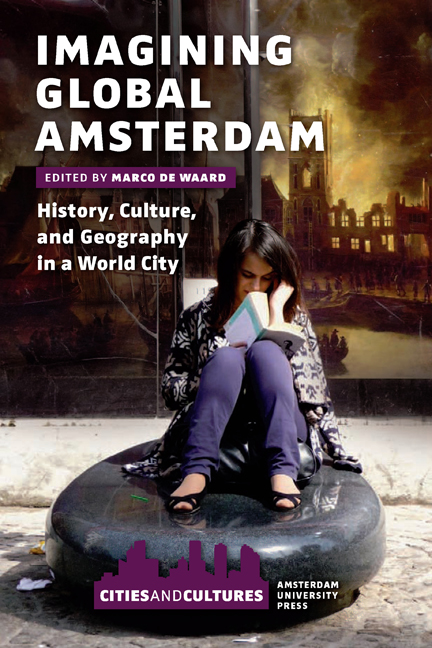6 - Dutch Decline Redux: Remembering New Amsterdam in the Global and Cosmopolitan Novel
Published online by Cambridge University Press: 19 January 2021
Summary
There is no memory of the global past. But there is an imagination of a globally shared collective future, which characterizes the cosmopolitan society and its experience of crisis.
– Ulrich Beck, ‘The Cosmopolitan Society and Its Enemies’ (2002, 27)The world has lost its capacity to ‘form a world’ [faire monde]: it seems only to have gained that capacity of proliferating, to the extent of its means, the ‘un-world’ [immonde], which, until now, … has never in history impacted the totality of the orb to such an extent.
– Jean-Luc Nancy, The Creation of the World or Globalization (2007, 34)‘Signs of Autumn’
This chapter examines the idea of (New) Amsterdam as a lieu de mémoire of early-modern global finance, trade, and commerce from the perspective of recent theories of cosmopolitanism and global citizenship, considered here more especially in their bearings on novelistic representation and literary form. Put briefly, what is at issue here is the question how the remembrance of an older capitalist world system – in this case, the Dutch commercial empire of the seventeenth and eighteenth centuries – exerts an impact on, and may contribute formatively to, the articulation of cosmopolitan and ‘globally conscious’ subjectivities in the present. Far from submitting to a hegemonic discourse of globalization, however, I will argue that literary evocations of the idea of (New) Amsterdam have recently begun to elaborate forms of historical (dis)identification that are not just highly pragmatic and self-consciously post-national, but also uniquely capable of interrogating the politics of ‘thinking globally’ as such. This argument places this chapter squarely in a contrapuntal relationship to that which precedes it: while Joyce Goggin and Erinc Salor examine the idea and image of Amsterdam in historically situated popular fictions which are deeply invested in the ‘romance’ of global commerce, the present chapter seeks to foreground the counter-hegemonic possibilities of some of the more experimental and self-reflective novels which use (New) Amsterdam as an important space of reference and in which early-modern Dutch colonialism is articulated as a theme.
- Type
- Chapter
- Information
- Imagining Global AmsterdamHistory, Culture, and Geography in a World City, pp. 101 - 122Publisher: Amsterdam University PressPrint publication year: 2012



